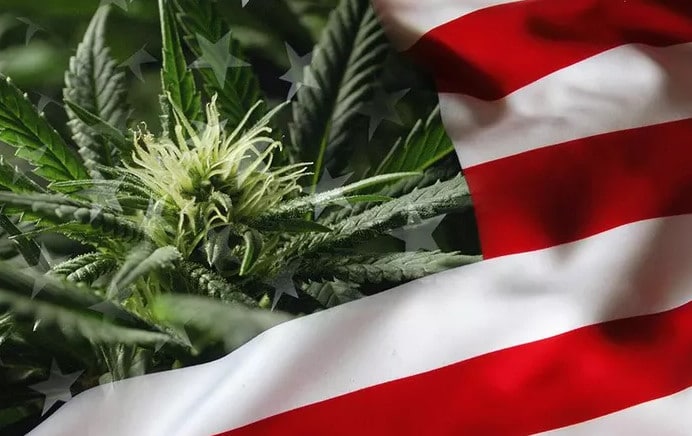Cannabis prohibition at the federal level could soon come to an end thanks to congressional legislation introduced Thursday morning to remove cannabis from the federal Controlled Substances Act and instead regulate and tax it similarly to alcohol.
US Sen. Ron Wyden and House Rep. Jared Polis (D-CO) introduced the bills, which end federal prohibition, allow states to decide whether to legalize, and impose certain federal regulations on cannabis businesses in legal states.
The Senate bill would also put in place a federal excise tax on cannabis products. In the House, a cannabis tax is being floated as a separate measure, introduced by Rep. Earl Blumenauer (D-OR).
On the criminal justice front, a separate set of so-called cannabis policy “gap” bills, also introduced by Wyden and Blumenauer of Oregon, would eliminate many of the consequences associated with federal cannabis convictions. The standalone bills could lessen cannabis penalties even if the rescheduling bills fall through.
“As more states follow Oregon’s leadership in legalizing and regulating marijuana, too many people are trapped between federal and state laws,” Blumenauer said in a statement. “It’s not right, and it’s not fair. We need change now—and this bill is the way to do it.”
“It’s time for Congress to step up.”
Robert Capecchi, director of federal policies, Marijuana Policy Project
Wyden, along with bipartisan Sens. Rand Paul (R-KY) and Michael Bennett (D-CO), filed an additional bill that would reform US Tax Code Section 280E to allow state-legal cannabis businesses to deduct business expenses from their federal taxes. Blumenauer and Rep. Carlos Curbelo (R-FL) filed a companion bill in the House.
Taken together, the package of legislation is seen as an effort to better harmonize policy between the many states moving forward with cannabis legalization and a federal government that still regulates cannabis more strictly than opium or cocaine.
“This is commonsense legislation that will eliminate the growing tension between federal and state marijuana laws,” Robert Capecchi, director of federal policies for the Marijuana Policy Project, said in a statement. “Voters and legislatures are rolling back antiquated state marijuana prohibition policies, and it’s time for Congress to step up at the federal level.”
Despite growing threats from the Trump administration against adult-use cannabis, Capecchi added that the bills could help diffuse tension between states and the feds and help foster a more cooperative regulatory relationship.
“States are adopting laws designed to improve public safety by replacing the illegal marijuana market with a tightly regulated system of production and sales,” he said. “The federal government should be working to facilitate that transition, not hinder it. It’s time for Congress to come to grips with the fact that marijuana is safer than alcohol, and most Americans think it should be treated that way.”
Data released yesterday from the General Social Survey shows the portion of American adults who think cannabis use should be legal grew from 52% in 2014 to 57% in 2016. A Quinnipiac University poll released last month also found 57% support nationally for legalization.
Despite increases in public support, many are more concerned about a federal crackdown than they have been in years. In California, which legalized cannabis for adult use in November, “voters have decided we don’t want to spend scarce resources on a war on marijuana,” said Lynne Lyman, California state director for the Drug Policy Alliance. “The threat of federal intervention essentially signifies a return to prohibition, which is a return to the chaos of an untaxed unregulated underground market, and ensnares thousands of otherwise law-abiding Californians in the devastating cycle of the criminal justice system.”
credit: 420intel.com













